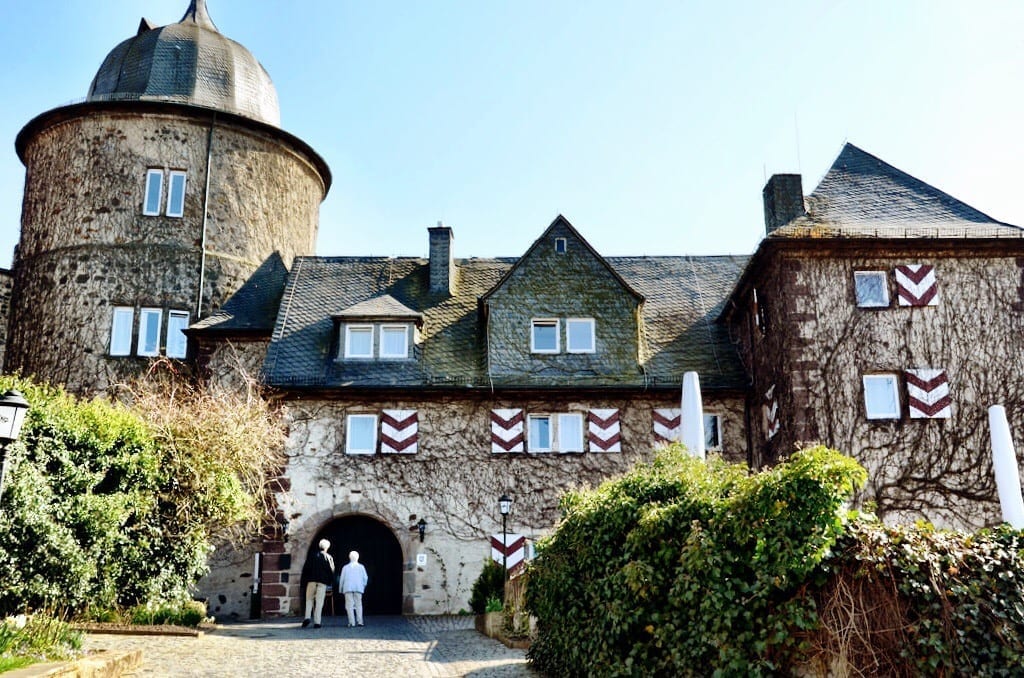
Every year I tend to spend a lot of time in Europe, and there’s a good reason for that. I well and truly love traveling there. From its cobbled streets to coma-inducing pastries, there are many things to love whether you’re in France, Germany, Spain, Italy or anywhere else really. However, as a non-European, there are some societal quirks that can be annoying at times. They’re nothing tragic and would never limit my travels around the Old World, but they’re idiosyncrasies that I think non-Europeans should know about and prepare for, to enjoy a seamless visit to what is truly one of the world’s most interesting destinations.

Hotels
There’s nothing I love more than a great hotel and while Europe is home to some of the best in the world, they can be tricky to find sometimes. Here in the US and Canada we have a preponderance of major brands and their subsidiaries and relative dearth of smaller, independent hotels. That means frankly that we know what to expect when booking hotel rooms. This isn’t as easy to do in Europe. Sure, the large cities and capitals have some major, international brands that you can trust, but the smaller cities and towns are almost entirely made up of small, one-off hotels. Many people prefer them, and that’s great, but what I don’t like is the uncertainty. There’s no way of knowing if it’s good or not until you show up, at which point it’s too late. So do your research and more importantly, ask people who have been there for recommendations. Also make sure you understand exactly what is and isn’t included in your room rate. From my experience, staff members rarely give any slack to mistakes made. Check out the room type, the kinds of beds, whether or not breakfast is included and so on. Also, if you’re visiting in the summer be sure to bring a small travel fan since many times not even the best hotels have central air.

Take It Slow
Whether it’s your first trip or your 50th, given the incredible sights and experiences in Europe it’s normal for visitors to want to see and do as much as possible. Resist that temptation. I know it’s hard, you’ve read about these famous sights for years and you simply want to see them all, but in reality that’s not only impossible, but it will make you miserable in the process. So my solution is to go slowish, but to be efficient at the same time. If you spend 10 days in Europe, I don’t see a problem with visiting several cities during that time as long as your schedule is well thought out. Pick a direction and continue with it, never backtracking. Or better yet, choose one city to base yourself and then do day trips to visit nearby cities and countries. I’ve used the hub and spoke system of traveling many times and it’s worked out really well for me. Train travel is so easy and efficient in Europe that I was able to have full days in each new city and still be back to my rented apartment in the evenings. Whatever you do though, please don’t try to see it all. You won’t be able to and you’ll just make yourself miserable along the way.

Things to Consider
If you haven’t traveled around Europe before, there are some simple things that will no doubt surprise you. Individually they’re not a big deal, but they are quirks you should know about, including:
- If you drink soda be aware that there’s no such thing as a free refill in restaurants. I have spent thousands of dollars on Diet Coke over the years.
- Take a small change purse with you to store your Euros. With 1 and 2 Euro coins, you’ll quickly build up a small treasury of money that you don’t want to lose.
- Always keep a few .50 Euro pieces in your pocket for impromptu bathroom emergencies.
- Trains are great, but learn the system. If you have an assigned seat, there will be a map on the platform telling you where to stand so that you can make it to your assigned train car in time.
- Don’t be “that person.” We’re all patriotic, but there’s no need to be obnoxious about it and that starts with clothing. Bring sensible clothes that don’t stand out. Layer for cooler evenings and mornings and leave the shorts at home. If it’s too hot, buy a pair of lightweight trousers instead. Blending in is key for any smart traveler.
- Don’t tip 20% in restaurants. (I know it’s hard, but resist.) Rounding up is up more common, but check the norms in the specific country before visiting.
Exploring Europe whether you’re in the UK or Greece is fun, exciting and not very challenging as far as traveling goes. But if you’re new to the experience, there are certain quirks that will surprise you. It’s always smart to be as prepared as you can be before any trip not just to avoid problems, but to also enjoy that long awaited vacation.
What other tips would you add to this list?

I would add that if you ask for water in a restaurant, expect to be asked if you want still or sparkling. And expect to pay for it. I still remember ordering a glass of sparkling water with dinner in Copenhagen and was surprised to see on the bill that I was paying the equivalent of about $9 for it. I drank every drop!
I have found it really helpful to know a few words of the language in the country that I am visiting, i.e. Hello, goodbye, please, thank you, words like that. People seem to appreciate the effort and so far, nobody has laughed at my pronunciation, at least not in front of me!